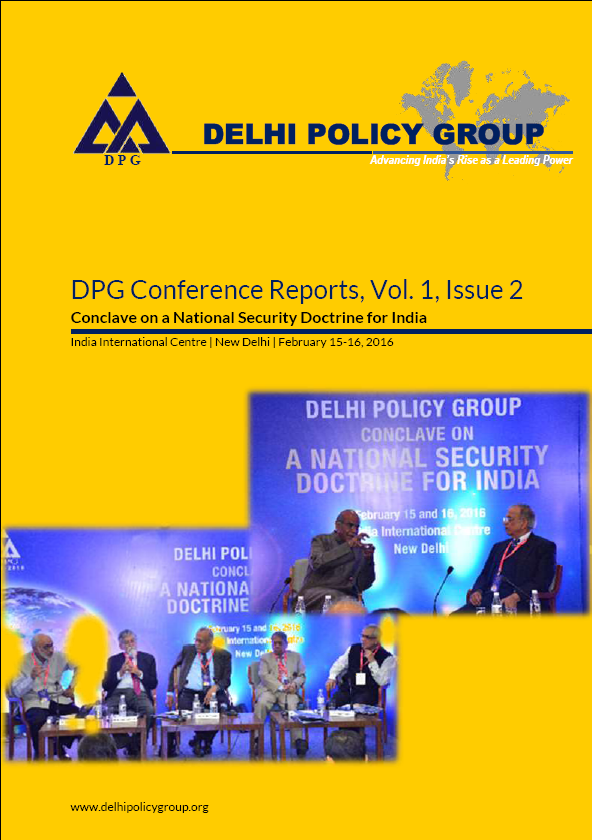Conclave on a National Security Doctrine for India
Many strategic analysts have suggested that India needs a National Security Doctrine (NSD). Others opine differently. They contend that India has managed successfully without one or, that such a document without matching capabilities, will serve no purpose. There is further debate on whether it should be a doctrine or a strategy. It was therefore considered important to examine the need for an NSD for India and what it must contain.
The concept of ‘National Security’ has evolved over the years. It is generally accepted as an executive responsibility wherein the Government along with its various institutions, provides for the state and its citizens security through a variety of structures, in concert with its overarching national interests. The idea was first developed by USA after the World War II and initially focused on territorial security and integrity. Military aspects dominated.
In today’s changed and complex world, security now has a much broader construct that includes, geopolitical interests, internal stability, economic and social security, sustainability et al. In most cases these overlap, are interlinked and intrinsic to a country’s growth and well-being. The interplay needs to be clearly enunciated and explained for greater awareness and understanding in general and for planners and practitioners in particular.
India faces myriad security challenges both external and internal. Unlike any other country in the World, Indian security is marred by legacy issues that include unresolved boundary disputes, not coming to terms with the partition of the sub continent, or culture of competition and challenge in case of one and unwillingness to accept India as a reckonable regional player in the case of the other, undermining Indian strategic space as it seeks to expand its political, economic and strategic influence. This has resulted in constant friction with two of its nuclear-armed neighbours with whom India has fought wars; increasingly acting in collusion.. There thus exists an omnipresent danger of regional strategic instability with potential for escalation threatening India’s territorial integrity and strategic cohesion.
Internally too, India’s diverse population of continental proportions presents potential for serious, societal and economic challenges. The radicalization of its neighbourhood, which is fast turning into arc of insecurity, accompanied by the rise of militancy and terrorism exacerbated by social discontent is posing serious challenges to Indian internal security and stability. Further there are issues of ecology and sustainability. All these pose a threat to India’s well-being and impediments to progress. While some of these challenges had been anticipated by framers of the Constitution, it is in the period thereafter, that a very large number have emerged and today their complex weave, warrants clear definition and understanding. The myriad factors impacting national security, influence almost every activity and their impact needs to be taken into account to guide the actions of each individual, institution or executive organ of the state.



